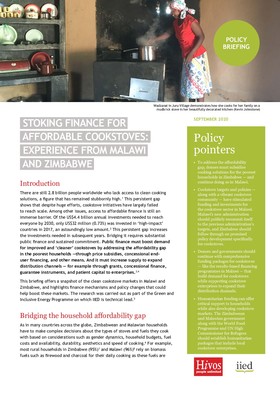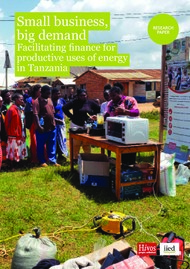Stoking finance for affordable cookstoves: experience from Malawi and Zimbabwe

There are still 2.8 billion people worldwide who lack access to clean cooking solutions, a figure that has remained stubbornly high. This persistent gap shows that despite huge efforts, cookstove initiatives have largely failed to reach scale. Among other issues, access to affordable finance is still an immense barrier. Of the US$4.4 billion annual investments needed to reach everyone by 2030, only US$32 million (0.73%) was invested in ‘high-impact’ countries in 2017, an astoundingly low amount. This persistent gap increases the investments needed in subsequent years. Bridging it requires substantial public finance and sustained commitment. Public finance must boost demand for improved and ‘cleaner’ cookstoves by addressing the affordability gap in the poorest households —through price subsidies, concessional end-user financing, and other means. And it must increase supply to expand distribution channels — for example through grants, concessional finance, guarantee instruments, and patient capital to enterprises. This briefing offers a snapshot of the clean cookstove markets in Malawi and Zimbabwe, and highlights finance mechanisms and policy changes that could help boost these markets. The research was carried out as part of the Green and Inclusive Energy Programme on which IIED is technical lead.
Cite this publication
Available at https://www.iied.org/g04472






